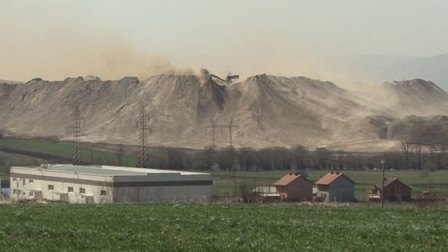Bank Group Contribution
Since 1999, the World Bank has provided to Kosovo and/or managed roughly US$400 million through more than 30 operations, including Trust Funds. As of January 2013, there were six active lending operations with commitments totaling US$70 million and two trust funds totaling US$9 million.
The two Sustainable Employment Development Policy Operations (SEDPO) supported a stable macro-fiscal framework and improved the conditions for sustainable employment. The first SEDPO tranche was US$34 million, and the second, disbursed in June 2012, amounted to US$49 million.
The International Finance Corporation (IFC) has invested US$15 million in the general manufacturing and mining sectors, while the advisory services aim to improve the investment climate and the performance of private sector companies, and to attract private sector participation in the development of infrastructure projects. The Multilateral Investment Guarantee Agency (MIGA) provided one guarantee for the ProCredit Group Central Bank Mandatory Reserves Coverage, which includes Kosovo, as host country.
Partners
The World Bank Group works closely with many external agencies, including through joint analytical work and the parallel or cofinancing of operations. The World Bank is partnering with the IMF and the U.S. Agency for International Development (USAID) to provide technical assistance to Kosovo’s financial sector, and with the Netherlands, the United States, and the European Commission in the energy and environment sectors. Austria is providing support to challenges in public financial management, while the UK’s Department for International Development (DfID) and the Swedish International Development Cooperation Agency (SIDA) have helped to build capacity for statistical analysis. The World Bank and other partners worked toward developing a Sector-Wide Approach (SWAP) for education, partly by conducting a joint feasibility study under the leadership of Kosovo’s Ministry of Education, Science, and Technology. A group of nine external partners have been closely involved in the design and implementation of the two Sustainable Employment Development Policy Operations and have contributed substantial grant resources for its two budget operations. The EU and USAID are the most prominent donors, with over 300 projects at the national and local levels. Other important partners include Austria, the Czech Republic, Denmark, Germany, Italy, the Netherlands, Norway, Sweden, Switzerland, and Turkey.
Moving Forward
The CPS 2012–15 provides selective and targeted financing with the main objective of supporting Kosovo to (i) accelerate broad-based economic growth and employment generation; and (ii) improve environmental management. It is expected that International Development Association (IDA) funding for the CPS would be approximately US$76 million (or roughly US$19 million annually), supplemented by about US$66 million in grant funds channeled through IDA by donors. IFC will provide around US$50 million in direct financing to the private sector as well as additional funds for advisory services.
The energy sector remains the main focus under the CPS, particularly the need to fully address Kosovo’s energy crisis, taking adequate account of environmental and social concerns.



